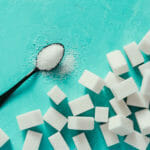There is nothing quite like the smell of a fresh cup of coffee. Whether you like it bold or creamy, we have good news for you: caffeine may actually be good for you.
Studies in recent years has proven that caffeine in both tea and coffee offers a multitude of health benefits. The two most important findings are that:
- There is not sufficient evidence to support a strong link between coffee and cancer.
- There is a link between moderate coffee consumption (3 to 4 cups per day) and a longer lifespan.
Other important health benefits of drinking coffee include:
- Caffeine increases memory. Studies have shown that caffeine enhances memories for up to 24 hours after consumption. It has also been shown to reduce the risk of developing Alzheimer’s disease.
- Caffeine can fuel your workout. It can give you the energy you need to get through a workout, and it can reduce perceived muscle pain while working out.
- Caffeine can help with post-workout recovery. It can relieve post-workout muscle pain. When mixed with carbs, caffeine replenishes glycogen stores more quickly after a workout.
- Caffeine reduces the risk of some forms of cancer. The list includes liver, uterine, colon, breast, lung, and skin cancer, among others.
- Caffeine may protect against Parkinson’s disease. A 2015 study showed that coffee consumption reduced the risk of Parkinson’s by half. Caffeine has also proven beneficial for individuals already diagnosed with Parkinson’s disease, as it can help with coordination problems.
Other studies have proven a link between caffeine and hair growth in balding men and women, a reduced risk of diabetes, increased alertness, and more. However, the majority of these benefits are the result of moderate coffee consumption. Researchers also stress the importance of consistent caffeine intake. Individuals that yo-yo between high and low caffeine consumption may not experience the same health benefits that consistent coffee drinkers do.
Although there are a lot of benefits, coffee may not be all good. In the past, it has been linked to bladder and pancreatic cancer, though both of these claims have been refuted in recent years. Drinking hot coffee can increase the risk of esophageal cancer, though this does apply to any beverage over 149°F.
High coffee consumption (anything over four cups) can increase the risk of cardiovascular disease. These studies, however, did not look at the effects of smoking, which often accompanies coffee intake.
In order to get the most out of your coffee, follow these tips.
- Allow coffee to cool slightly before indulging.
- Keep consumption to a moderate level (anything below 4 cups).
- Avoid adding a lot of sugar, syrups, or sweet toppings to your coffee.
- Try not to drink coffee right before going to bed.
For an extensive look at the pros and cons of coffee, check out this post by Coffee Abode.
Coffee has gotten a bad rap lately in the news—particularly big chains like Starbucks, Peet’s Coffee, and other coffee companies. This is because coffee contains acrylamide, a chemical that is produced as a byproduct of the coffee roasting process. Acrylamide is said to be linked to cancer, but it has not been studied well. As of this time, most studies have not found an increased risk of cancer related to acrylamide intake in humans.
Acrylamide is also found in fried foods, burned or charred foods, cigarettes, and other foods. To reduce your intake of acrylamide, quit smoking and reduce your consumption of fried foods and burned foods. If you are concerned about your coffee, choose dark roasts over light roasts and avoid instant coffee and coffee alternatives, which contain higher levels of acrylamide.
If you don’t like coffee, don’t feel as though you have to drink it. Tea is a good alternative. Black tea is the most caffeinated tea. It has between 30-50% of the amount of caffeine found in coffee. Teas are rich in antioxidants and some kinds may offer different health benefits.
If you are a coffee lover, rejoice! Next time you enjoy a fresh cup of joe, rest assured knowing that you are enjoying a variety of health benefits. Cheers!
Sources
https://www.health.harvard.edu/blog/the-latest-scoop-on-the-health-benefits-of-coffee-2017092512429
https://spoonuniversity.com/lifestyle/how-much-caffeine-is-actually-in-your-tea
https://www.telegraph.co.uk/health-fitness/body/surprising-health-benefits-caffeine
https://www.caffeineinformer.com/top-10-caffeine-health-benefits
https://www.healthline.com/nutrition/acrylamide-in-coffee#section6





